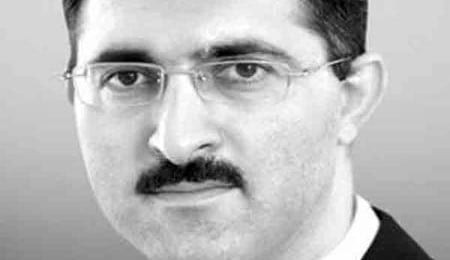Keyword: Hizmet (Gulen) movement

Profiled lawyer files criminal complaint against MİT, MGK
Taraf began publishing a string of confidential documents suggesting that the Justice and Development Party (AK Party) government and MİT had collected information on a large number of individuals through 2013 at the request of the MGK. The targets were reportedly members of the Hizmet movement, a faith-based community inspired by Turkish Islamic scholar Fethullah Gülen.

The state, AKP, Religious Affairs Directorate, Alevis and rights
The ruling Justice and Development Party (AKP) claimed it would minimize the space the state occupies in people’s lives and reduce bureaucracy and downsize the public sector when it was first elected to office. During the early years of its rule, it really moved to achieve these targets. But as it increased its control over the entire state apparatus, it has increasingly become yet another typical Turkish ruling party that prioritizes the state.
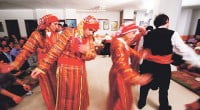
What do Alevis want?
Alevis have been traditionally considering themselves a minority because their interpretation of Islam differs from the state’s understanding. In such a climate, the Abant Platform organized [a Gulen Movement affiliated organization] a three-day-long meeting by Lake Abant over the weekend, bringing representatives from the Alevi and Sunni community. Personally, I learned a lot from the meeting which almost served as a channel for venting for Alevis.

Gulen wants Anatolian [interpretation of] Islam
What does Gulen say? He says: “Work hard and earn money, but be honest. Allah will reward your hard work and honesty. But do not squander that reward. Turn it into an investment and help others.” It sounds a lot like the Protestant work ethic. This is the underlying vision of capitalism. The Gulen Movement looks a lot like the Ottoman-era Ahi movement. It is a kind of a solidarity group that provides people with jobs, education, and reintegration into society.

Pulitzer Prize equals five years in prison in Turkey
The statement in the headline belongs to Bülent Arınç, deputy prime minister and spokesperson for the Turkish government. Moreover, he is responsible for the government’s media policy. For Western readers, I should clarify that he was not joking when he said, “A journalist might win the Pulitzer Prize for his reporting, but he should face the consequence of five years in prison.”

Middle East’s Struggle for Democracy: Going Beyond Headlines
Last month, when Hizmet representatives criticized the government-proposed legislation that calls for banning exam prep schools, Turkish and Western journalists labeled this opposition as a feud between Prime Minister Erdogan and Mr. Gulen because roughly 15-25 percent of these prep schools were founded by Hizmet participants according to various estimates. But that is an oversimplification.
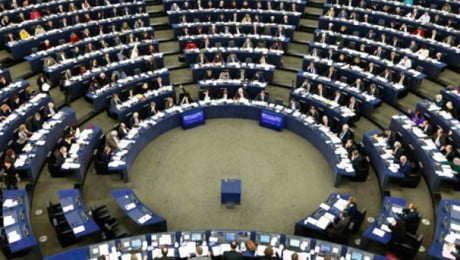
EP says Erdoğan’s ‘treason’ accusation ‘totally unacceptable’
Two of the most senior politicians of the European Parliament (EP) have strongly criticized Prime Minister Recep Tayyip Erdoğan’s “treason” remarks against the Taraf daily and its reporter Mehmet Baransu, calling the prime minister’s comments unacceptable. Hannes Swoboda, the leader of the second-largest group in the EP, said he was “gravely concerned” by Erdoğan’s remarks and the subsequent cases filed against the daily and its reporter Baransu.

Turkish PM Erdoğan’s rhetoric and reality
One of the main problems that Turkish and foreign interlocutors of Turkish Prime Minister Recep Tayyip Erdoğan complain of is that he employs fiery rhetoric, with a special emphasis on drama, to score points with his home base of political Islamists, a narrow minority within his popular ruling Justice and Development Party (AK Party).
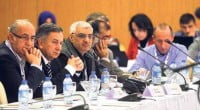
Alevi problems deeper than they seem, opinion leaders agree
On the first day of the 30th Abant Platform meeting on Friday on the Alevis issue in Turkey, Alevi and Sunni intellectuals and opinion leaders agreed that the problems date back to centuries ago and are more complicated than they seem. The event, titled “Searching for peace and a future together,” brought together representatives of various Alevi communities as well as Alevi and Sunni pundits, journalists and academics in an effort to have a comprehensive debate on one of the lingering problems of Turkish society.
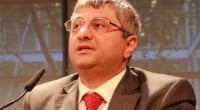
Strategic defamation of Fethullah Gülen: English vs. Turkish
Dr. Koç’s review and statistical analyses show very clearly that the defamation of Gülen and the Hizmet movement is being strategically operated. Gülen is simultaneously portrayed as an Islamic danger who is secretly trying to resurrect the Ottoman Empire and caliphate (in English) and as an American and Zionist puppet who is destroying Turkey and Islam with his “moderate Islam” (in Turkish).
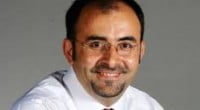
Discrimination by AKP government [against Hizmet movement]
Discrimination by the Justice and Development Party (AKP) government, which argues that it has addressed this issue vis-à-vis religious people, has never been analyzed. The recent row between the AKP and the Hizmet movement refers to an important and interesting fact, because it reveals this reality. In light of these discussions, bureaucrats who have been discriminated by the AKP government because of their views are now talking.

Is the Hizmet movement resisting normalization?
Accusing the Hizmet movement, which insistently demands the fulfillment of the steps towards democratization which I referred to above and contributes to the process of change as evidenced by its stance in the referendum, of serving as a parallel structure indirectly means: “I will not change myself and introduce universal reforms. You have to live with this painful fact for the normalization of the country and take your steps accordingly.”

